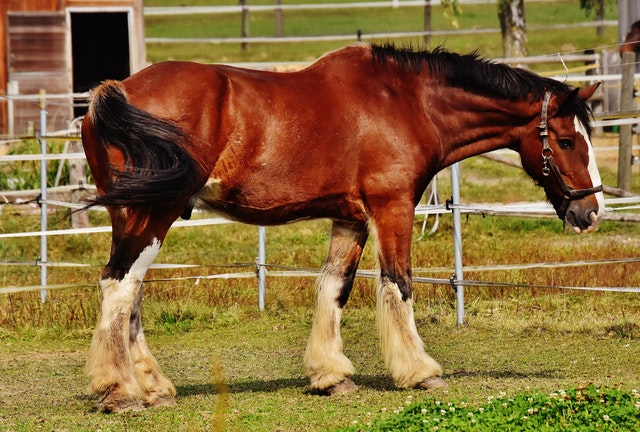You’ve finally decided that you want a horse of your own, so now you can simply go out and buy one, right? Well, a horse isn’t exactly as simple to own as a cute little kitten or a goldfish. Before you buy a horse, you will need to find a place to keep it. In addition, you should be aware of how much money you will need to spend to maintain your horse.
Horses need to be shoed, they need to receive vaccinations and they eat quite a lot. You will need to spend quite a lot on bedding, grooming supplies and tack as well. However, the most important thing you will need to do is to be sure you know how to buy a good horse.
There are plenty of horses you shouldn’t buy out there. Some have bad habits like biting, kicking or cribbing which is what horse fanciers call the act of chewing on the edge of a stall. Others are not well trained. Although they may know some of the basics, they are only green broke, meaning they may be willing to wear a saddle, but do not know all of the signals that a thoroughly trained horse knows.
Some horses are unhealthy. A problem with hooves or legs can render a horse worthless for riders. Owning a horse that can only handle a slow walk around the ring with a child on its back, when you were hoping for an animal that could compete in shows, is heartbreaking for a new horse owner.
Now that you know all of the things that can be wrong with a horse, how do you find the right horse for you? You should be careful about buying horses at an auction or through the newspaper. Instead, ask around at horse shows or other events. Serious competitors often move up to more challenging or flashier horses as they gain experience. Their old, dependable beginner horses are perfect for people who want the first horse.
If you find a horse that you are interested in, ask around before you hand over your cash, especially if the horse has competed in horse shows, barrel racing competitions or other events. Other horse owners will know if that horse has a nasty disposition or always balks at the chicken coop, which is a popular jump at shows. They may even know about the health problems the horse has.
Once you investigate the horse’s background, it is time to call in your veterinarian. Your vet will test your prospective horse’s eyesight, hearing, heart, and teeth. If you aren’t sure how old the horse is, the vet can even estimate the animal’s age by inspecting his teeth. Most importantly, however, your vet will take a look at the horse’s legs and feet. He will be looking for swollen hocks, leg splints or thrush, which is a dangerous hoof infection that often is caused when a horse is left standing in dirty, wet bedding for long periods of time.
Finally, it is time to see if the horse is a good fit for you. Tack him up yourself to be sure he doesn’t have any nasty habits, like refusing to take the bite or kicking and biting. Mount the horse and put him through his paces. Be on the lookout for flaws such as the inability to change leads or the refusal to back up on command. Some of these behaviors can be corrected with the help of a good trainer, but you will want your first horse to be well trained and well behaved.
I hope you found this post useful and informative. In case you have any queries or suggestions related to this post, feel free to leave your thoughts in the comment section below. And, if you want to choose from a variety of good quality horses, I suggest you go for Horse Squad.
